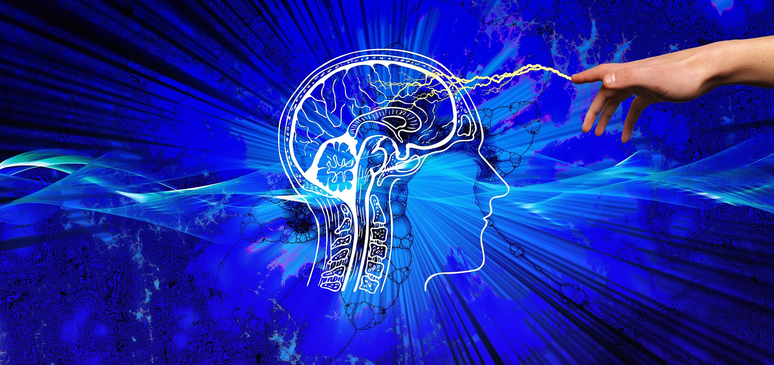Find out how the brain reacts to some mental illnesses and how they manifest themselves. How the brain reacts to anxiety Anxiety is the body’s response to situations that we interpret as threatening, triggering a series of physical and mental reactions. In our brain, for example, it involves complex interactions. Now you understand how it works: […]
Find out how the brain reacts to some mental illnesses and how they manifest themselves
How the brain reacts Anxiety
Anxiety is the body’s response to situations that we interpret as threatening, triggering a series of physical and mental reactions. In our brain, for example, it involves complex interactions. Now you understand how it works:
- Amygdala: The amygdala, an almond-shaped region of the brain, is often associated with emotional response and memory processing. In anxiety, it plays a crucial role in perceiving and interpreting stimuli as threatening. Its activation triggers immediate physiological responses and prepares the body to face the situation.
- Hypothalamus and autonomic nervous system: The hypothalamus, a small region located at the base of the brain, serves as a sort of command center for the autonomic nervous system. In response to activation of the amygdala, the hypothalamus triggers the release of stress hormones such as cortisol and adrenaline. Additionally, these substances increase the heart rate, dilate the airways, and prepare the body for a possible fight-or-flight response.
- Prefrontal cortex: The prefrontal cortex, particularly its most anterior regions, plays a crucial role in emotional regulation and cognitive control. In anxious situations, this area often becomes impacted, making it difficult to rationally process information and make thoughtful decisions. Therefore, this can lead to an amplification of fear and worry.
How the brain reacts to depression
Depression is a mental disorder that not only affects the emotional state, but also has a significant impact on the functioning of the brain. In depressed individuals, dysfunction is observed in the hypothalamus, resulting in changes in sleep patterns, appetite, and other behaviors regulated by this area of the brain. Another important region is the amygdala, which plays a central role in processing emotions, including fear and anxiety, as we mentioned earlier. In depression, the amygdala may be overactive, contributing to the feelings of sadness and hopelessness associated with the condition.
Serotonin and depression
The neurotransmitter serotonin is also strongly implicated in depression. Serotonin plays an essential role in regulating mood, sleep and appetite. On the other hand, reduced levels of serotonin are associated with depressive symptoms, and many antidepressants attempt to correct this imbalance by increasing the availability of this neurotransmitter in the brain.
How the brain reacts Bipolarity
Bipolar disorder, also known as bipolar disorder, is characterized by extreme changes in mood, ranging from episodes of mania (a type of euphoria) to depression. These changes affect the brain in several ways, involving both chemical and structural factors. On a chemical level, bipolarity is associated with imbalances in neurotransmitters, chemicals responsible for communication between neurons. Additionally, during episodes of mania, there is an increase in levels of neurotransmitters, such as dopamine and norepinephrine, leading to increased brain activity and alertness. On the other hand, in depressive episodes, these levels tend to decrease, causing feelings of sadness and apathy.
Source: Terra
Ben Stock is a lifestyle journalist and author at Gossipify. He writes about topics such as health, wellness, travel, food and home decor. He provides practical advice and inspiration to improve well-being, keeps readers up to date with latest lifestyle news and trends, known for his engaging writing style, in-depth analysis and unique perspectives.








